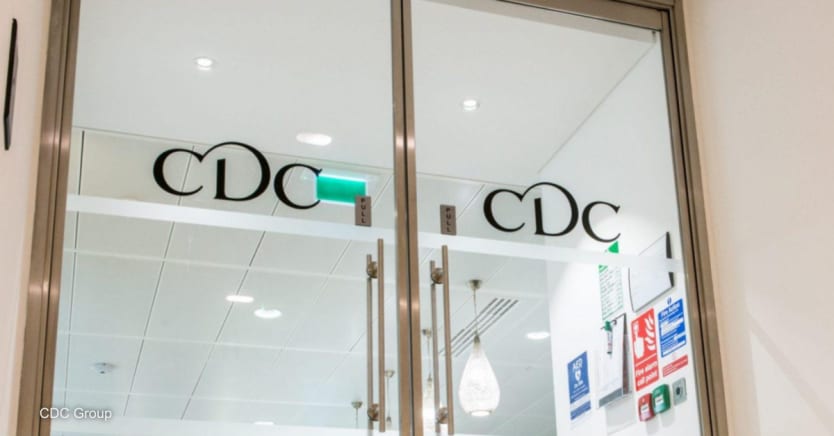
The United Kingdom’s development finance institution, CDC Group, is rebranding itself as British International Investment and will drop “development” from its name as it receives a widened mandate from the government.
Foreign Secretary Liz Truss suggested the body would be used to counter Chinese influence, saying CDC Group would provide “reliable and honest sources of finance.”
U.K. aid spending has faced shock cuts, reports of experts abandoning the civil service in droves, and endless news of programs forced to close. Is this the end of the U.K. as a development leader? Join Devex on Dec. 1 at 9 a.m. ET (3 p.m. CET) for a discussion about U.K. aid’s future.
The move was met with a mixed reaction from the U.K.’s development sector, with some, especially in NGOs, bemoaning the move and others, mainly in think tanks, cautiously welcoming it.
“When freedom-loving democracies invest in infrastructure and supply technical expertise, it makes countries freer, wealthier and more secure,” said Truss.
She continued: “Too many countries are loading their balance sheets with unsustainable debt. Reliable and honest sources of finance are needed. Britain and our allies will provide that, with British International Investment a key delivery vehicle. This is a win-win for all.”
Investments will focus on “sustainable” infrastructure and technology as part of Prime Minister Boris Johnson’s Clean Green Initiative to support infrastructure development, according to a statement.
“This new strategy will allow us to invest further in even more countries and will result in us financing the critical infrastructure that will allow all countries to build back better and make a positive difference to countless lives.”
— Nick O’Donohoe, chief executive, CDC GroupIt added that CDC Group was a key part of U.K. government plans to “mobilise up to £8bn [$10.65 billion] a year of public and private sector investment in international projects by 2025” including through partnering with capital markets and sovereign wealth funds. Despite cuts to the U.K.’s aid budget, which have shut down or restricted programs in areas such as reproductive health and humanitarian response, the body is set to see increased funding.
Truss said the overhaul would create jobs in the U.K. and help grow economies across Asia, Africa, and the Caribbean, “while drawing them closer towards free-market democracies and building a network of liberty across the world.”
The name change of CDC Group — which stands for Commonwealth Development Corporation — will take effect in April 2022. A new Investment Policy, which states the organization’s mission is to “help solve the biggest global development challenges by investing patient, flexible capital to support private sector growth and innovation,” will also begin in 2022. The group has also appointed a new chair, Diana Layfield, who was previously head of European, Middle East and African partnerships at Google.
The move builds on the Build Back Better World initiative, a project conceived by the G-7 to counter the influence of China’s extensive Belt and Road infrastructure project.
“This new strategy will allow us to invest further in even more countries and will result in us financing the critical infrastructure that will allow all countries to build back better and make a positive difference to countless lives,” said CDC Group Chief Executive Nick O’Donohoe.
The new strategy defines low-income populations as people living below $5.50 per day, which is close to the World Bank’s poverty line for upper-middle-income countries but a stark contrast to the poverty line for the poorest people — defined as $1.91 per day for low-income nations, or $3.21 for lower-middle-income countries.
“This is clearly to justify expansion into Asia and some of the Caribbean that would count as middle-income [countries],” said Dario Kenner, lead analyst for sustainable economic development at the Catholic Agency for Overseas Development. Kenner also expressed concerns that the new strategy allowed for the possibility that CDC Group could invest in fossil fuels, but the group maintains that its investments are aligned to the Paris Agreement.
“The Number One priority of a development finance institution must be tackling poverty in lower income countries — that’s what development finance institutions are for,” said Sarah Champion, chair of the International Development Committee of Parliamentarians who monitor U.K. development policy. “I want to see a clear commitment from BII to fight poverty. The poorest and most vulnerable must not be left behind,” she said in a statement.
Andrew Mitchell, the former international development secretary who also introduced reforms to CDC Group in 2011, welcomed the changes as “sensible” and told Devex they “should mean that the private sector grows in the developing world bringing the hope of employment and prosperity to those who languish in poverty and despair.”








